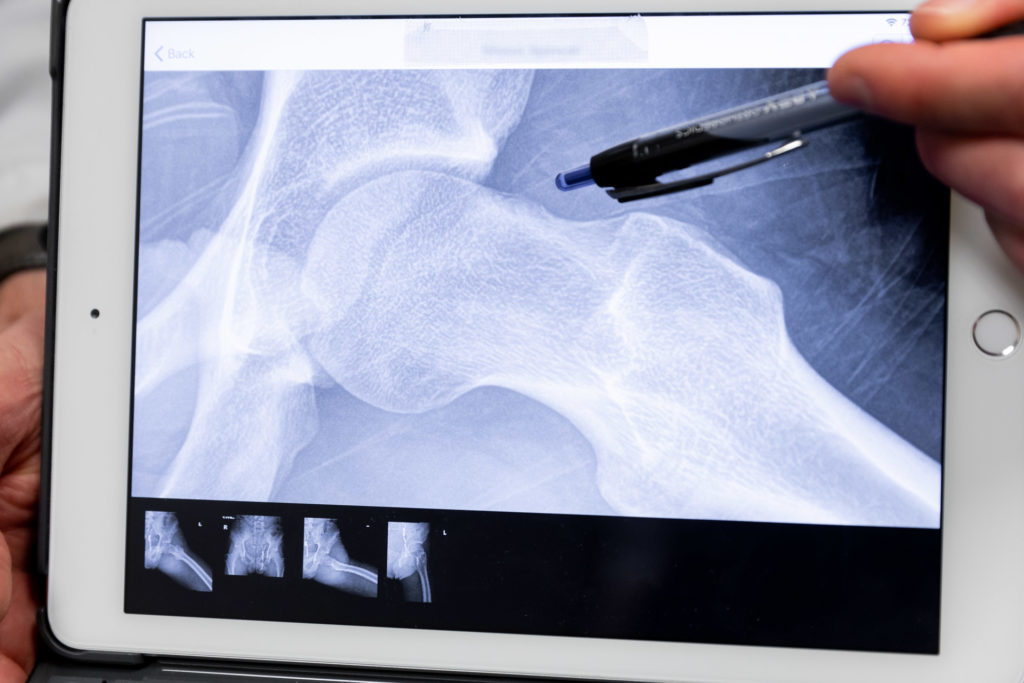

Although many people can manage hip pain through non-surgical measures, some require a total hip replacement for relief and mobility. Surgical intervention doesn’t have to be scary, especially when you go to a trusted orthopedic surgeon.
At Kansas City Orthopedic Alliance, we guide you through each step of total joint replacement. Every patient receives personalized care that centers on education and full awareness of their treatment options. This means that we will always be available whenever you have concerns.
How does a total hip replacement work?
A total hip replacement (or hip arthroplasty) removes damaged bone and cartilage that could arise from arthritis or injuries. After removal, your surgeon will replace your old joint with an artificial prosthesis. Made from metal, ceramic, and/or plastic materials, these artificial joints replicate the ball-and-socket shape of the hip joint.
Who are candidates for total hip replacement procedures?
Not everyone with arthritis or an injury is a candidate for a total hip replacement procedure in Kansas City. Many surgeons will recommend conservative options such as physical therapy, cortisone injections, and medications. However, a procedure may be necessary if conservative treatment fails and your hip pain affects your everyday activities and ability to maintain a healthy weight.
The importance of proper hip replacement recovery
Unlike a procedure like a shoulder replacement, hip replacements depend on your ability to walk and move your hip. In that case, it is extremely important to maintain an active lifestyle. If you return to a sedentary lifestyle following replacement, the joint won’t receive enough movement to promote nutrient and blood flow. Before you opt for surgery, make sure you are willing to work on your own (i.e. physical therapy, staying mobile, and other measures) to ensure the efficacy of your procedure.
Those who have a strong support system at home should be able to return home directly after the procedure to recover, assuming no underlying conditions are present. If you are alone, you will have to remain at the surgical facility for 1 to 3 days. Either way, walking is a crucial element for proper recovery.
By month 1 or 2 post-op, your soreness should be minimal if you have any at all. The great thing about the hip joint is that it tends to move better and become less stiff than the knees. This makes recovery much easier. Once the recovery process is complete, you can expect your hip replacement to last for the rest of your life.
KCOA can provide your total hip replacement procedure in Kansas City
Dr. Scott Abraham and Dr. David Clymer believe the core of each patient’s success lies in proper diagnosis. An appointment with one of our providers includes the highest quality technology to pinpoint a patient’s underlying musculoskeletal conditions. From there, we can better understand which treatment will work best for you.
KCOA’s private practice model ensures our physicians can provide patients with the most value that doesn’t involve hidden fees or outlandish pricing.
For a thorough evaluation, call us at 913.319.7600 or schedule an appointment today.


